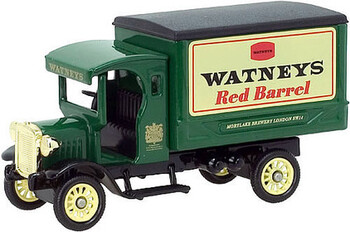Diecast Model Companies

Some of the prominent diecast model companies that started manufacturing diecast toys for the general public were the UK Company, Meccano and the US Company, Dowst Brothers during the early 1930s. These diecast model companies introduced the brands 'Dinky Toys' and 'Tootsietoys' respectively. The initial diecast toys produced by these diecast model companies were actually very crude and fragile due to the quality of alloy used. Unlike their products, have a look at, Poker Chips diecast model companies in general suffer from a turbulent history. Their development and growth were in general interrupted by the 2nd World War. Apart from the lack of raw materials for diecast model companies to manufacture toys during those times, the role of diecast model pieces also took a different direction during the 2nd World War.
During the war, the production for diecast model pieces was mostly taken over by a few other diecast model companies like H.A. Framburg and CO and Comet Metal Products consider, RC F1 Cars for the allied forces. These diecast model companies concentrated on the production of recognition models for the military. What happened to Dinky Toys during the war was not clear, but what was known was that their French operations were affected by the Nazis occupation of France. It was rumored that some models were purposely disguised in order that the Germans could not distinguish allied aircrafts, vehicles and ships from the Dinky Toys models.
It was only after the end of the 2nd World War that the diecast model companies were able to shape this industry into what it is today, a hobbyist's market. The post war period was also known as the Golden Era for three main diecast companies, Lesney Products , Poker Chips that made the 'MATCHBOX' series, Dinky Toys which resumed productions after the war and Mettoy Playcraft Ltd that produced the 'Corgi Toys' series. These three diecast model companies were the dominant industry players in the world until 1968 when the US toymaker Mattel introduced the 'Hot Wheels' series. The low friction wheels of the 'Hot Wheels' series revolutionize the whole industry and present a threat to the other diecast companies.
Although the diecast model companies enjoyed increasing popularity after the war, by the 1980s, the initial market players had gone bankrupt. The brands Corgi Toys, Dinky Toys and Matchbox all stopped production within three years of each other. The economic climate have a look at, Fisher Price Doll House at that time made it virtually impossible for diecast model companies to survive in the UK. The US toymaker Mattel had shifted their production base to Asia later brought over the Corgi and Matchbox brand and continued production of them as sister brand to the Hot have a look at, Magic Tricks Wheels series. The Corgi brand was later resold to the Hornby group in May 2008.
Today, the diecast model companies have begun to specialize in their own niches. As the hobby of collecting diecast pieces become more popular, collectors have also become more discerning. Thus, it is not uncommon for collectors to look to certain diecast model companies for certain pieces that they want to collect. For example, those collectors that want to specialize in military aviation pieces will look to brands like the Dragon Wings why not visit, Collecting American Coins 'WarBirds' series. Regardless of the niches, one will not be hard pressed to find specialized diecast model companies that produce the pieces that a collector need to complete his collection.
Dinky Diecast
 Acrylic Jewelry Display Cases Acrylic Jewelry Display Cases
Acrylic jewelry display cases can be a fantastic way of displaying your collection of jewels whether |
 Uniden CB Radio Uniden CB Radio
A Uniden CB radio is excellent choice when considering purchasing a CB radio. Why? There are a numbe |
 Aleuromancy Aleuromancy
A form of divination that involves flour is known as Aleuromancy. The name Aleuromancy is derived fr |
 Coin collecting Supplies Coin collecting Supplies
If you decide to collect coins, it is not only the money you will need for your collection, there ar |
 Martial Arts Martial Arts
There are many different martial arts styles all with different techniques, some use aggressive and |